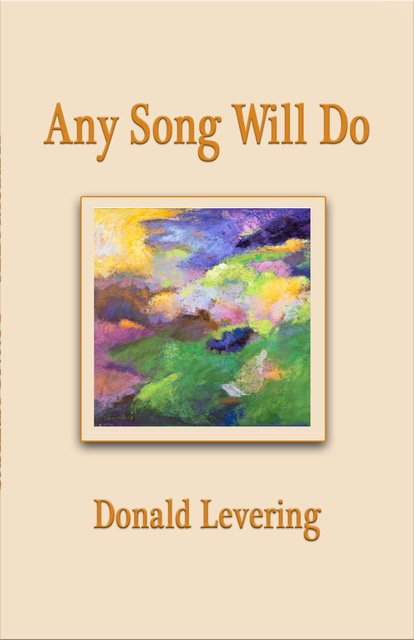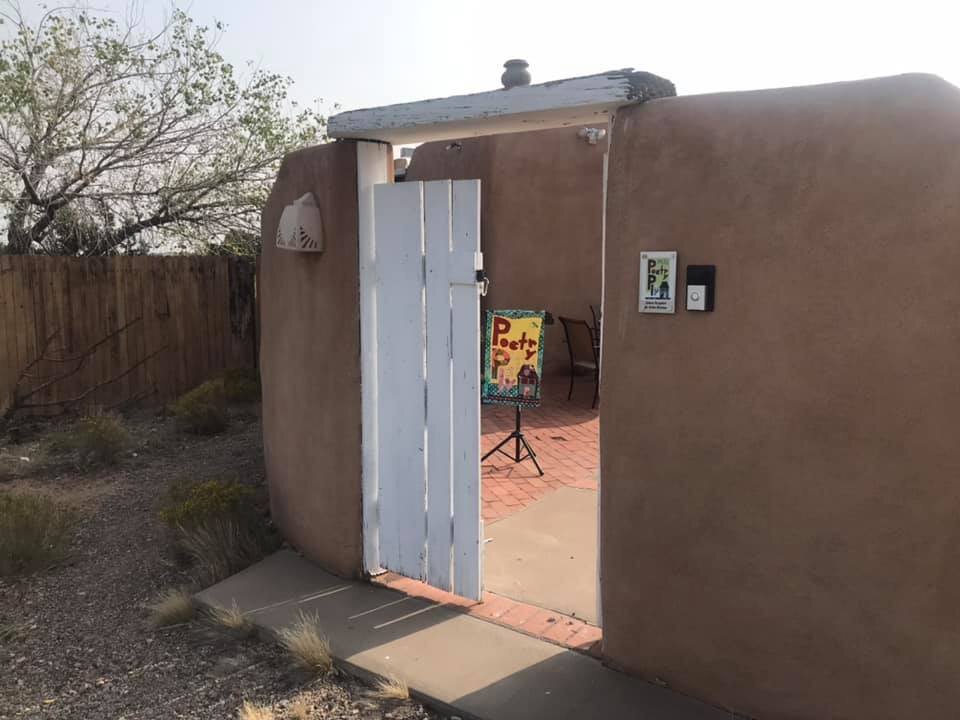 Image 1 of 3
Image 1 of 3

 Image 2 of 3
Image 2 of 3

 Image 3 of 3
Image 3 of 3




Gleeful Ghazals with Donald Levering: April 26, 10 am - 3 pm
In-person class at Jules’ Poetry Playhouse with Donald Levering
Saturday, April 26, 2025 .
10 am - 3 pm
Originally from 7th century CE Arabic culture, the ghazal came to contemporary American English poetry through Persia and India, Goethe and Lorca. Among notable US poets who have written ghazals are Martha Collins, John Hollander, Claudia Castro Luna, W. S. Merwin, Adrienne Rich, and Tracy Smith.
The form has an inherit lightness and charm that is apt for love and nature poetry, yet it has been employed to address metaphysical questions and such somber subjects as species devastation and political corruption. It encourages a nimbleness of mind to variously circle around a subject and maintain the unusual placement of the rhymes.
In this workshop we will briefly look at the form’s history, identify its elements and stylistic traditions, and examine several ghazals of diverse voices and approaches. We will practice writing ghazals by building them in a structured manner, concluding with a class ghazal. Students will be given a packet of ghazals for further study.
In-person class at Jules’ Poetry Playhouse with Donald Levering
Saturday, April 26, 2025 .
10 am - 3 pm
Originally from 7th century CE Arabic culture, the ghazal came to contemporary American English poetry through Persia and India, Goethe and Lorca. Among notable US poets who have written ghazals are Martha Collins, John Hollander, Claudia Castro Luna, W. S. Merwin, Adrienne Rich, and Tracy Smith.
The form has an inherit lightness and charm that is apt for love and nature poetry, yet it has been employed to address metaphysical questions and such somber subjects as species devastation and political corruption. It encourages a nimbleness of mind to variously circle around a subject and maintain the unusual placement of the rhymes.
In this workshop we will briefly look at the form’s history, identify its elements and stylistic traditions, and examine several ghazals of diverse voices and approaches. We will practice writing ghazals by building them in a structured manner, concluding with a class ghazal. Students will be given a packet of ghazals for further study.
In-person class at Jules’ Poetry Playhouse with Donald Levering
Saturday, April 26, 2025 .
10 am - 3 pm
Originally from 7th century CE Arabic culture, the ghazal came to contemporary American English poetry through Persia and India, Goethe and Lorca. Among notable US poets who have written ghazals are Martha Collins, John Hollander, Claudia Castro Luna, W. S. Merwin, Adrienne Rich, and Tracy Smith.
The form has an inherit lightness and charm that is apt for love and nature poetry, yet it has been employed to address metaphysical questions and such somber subjects as species devastation and political corruption. It encourages a nimbleness of mind to variously circle around a subject and maintain the unusual placement of the rhymes.
In this workshop we will briefly look at the form’s history, identify its elements and stylistic traditions, and examine several ghazals of diverse voices and approaches. We will practice writing ghazals by building them in a structured manner, concluding with a class ghazal. Students will be given a packet of ghazals for further study.
Class limit 10 students.
Writing lunch break at noon at Jules Poetry Playhouse. Bring your own lunch if desired. Plentiful snacks and beverages provided (coffee, tea, water, scones and/or bagels, chips, salsa, cookies). Ample time to explore the grounds of Jules’ Poetry Playhouse and walk the labyrinth.
Bring writing materials, free wi-fi if needed.
Hosted by Jules Nyquist and John Roche.
Author books will be for sale, along with Poetry Playhouse Publications books and art.
Directions and contact info sent with registration. Questions? Email jules@poetryplayhouse.com.
Your instructor:
Born in Kansas City and raised there and in New York, former NEA Fellow Donald Levering has worked as a teacher on the Diné reservation, groundskeeper, and human services administrator. Among his recent honors are the Carve Poetry Contest Award, the Tor House Robinson Jeffers Prize, and the Literal Latté Prize. His 16th poetry book, Breaking Down Familiar, placed 2nd in the National Federation of Press Women Creative Verse contest. Garrison Keillor featured his work in a “Writer’s Almanac” podcast. His poems have appeared in over 300 journals, including Beloit Poetry, Bloomsbury Review, Hiram Poetry Review, Hollins Critic, Midwest Quarterly, Notre Dame Review, Poet & Critic, Poet Lore, Valparaiso Review, and Verse Daily. He lives in Santa Fe, where he conducts poetry craft workshops and volunteers as a US citizenship tutor and as a Kitchen Angels driver. He co-curates with Barbara Rockman the poetry reading series at HERE Gallery.
Jules’ Poetry Playhouse is at 11 Homestead Lane, Placitas, NM. Directions sent upon registration. No refunds; however, you may apply the fee to another class or merchandise if you need to cancel.
Defunct
by Donald Levering
Nostalgia’s invoked by—Doesn’t anyone anymore...?
What do the young do for fun anymore?
One foot in the boat, one foot on shore.
An ambivalent stance is what’s done anymore.
Fake news and gas lighting—political ploys
Truthfulness and good faith—defunct anymore.
God bless my phone, it knows where to turn.
God knows my destination anymore.
Nervosity embodied, what is the hurry?
You learn to look when you don’t run anymore.
Too old and slow for most contact sports,
Sometimes I don’t come anymore.
Levering word-play, like sex, used to come easy.
Where went my storehouse of puns anymore?
Ghazal:Window
Shadab Zeest Hashmi
Tea kettles are filled with pebbles, lizards lie in the shade of the window
When the roof has thorns, doors bricked up, hope is made of the window
Socrates sleeps like a baby in a boat of logic, while the cell and sentries fade
The youth shudder at the punishment: Cup of hemlock? Or flayed by the window?
Hear thought begetting thought in goatskin bagpipes? Hear logic in rain?
Ask and wait as Socrates did— the mind’s endless music is played at the window
The jailed mystic carves a bowl of stone, the poet writes on a cup of Styrofoam
By day prison-guards taunt, by night, are haunted by words prayed at the window
You left behind a shuttered palace for a single name carved in wood grain
Desire’s forest is treacherous Zeest; let wisdom ripen in a glade by the window
Water Color Ghazal
Donald Levering
“Last Light” by Susan List
Dusk on the lagoon like a burner’s gas lights.
A hermit’s quietude flickers in past light.
Magenta spreads through the gloaming firmament.
Love of nightfall’s spectrums surges in “Last Light.”
Twilight slides with earth’s rotation into shade.
Swallows, bats, and moths rise into vast night.
Trappings come unmoored, habitual views disperse.
Infinity glimpses scatter in Big Bang’s blast lights.
Loose photon jubilee, cumulus hosannas.
Memory, time, and distance merge in amassed light.
Eyes lift to the water color’s fontanelle of sky.
List stirs Donald’s past heartache with “Last Light.”






